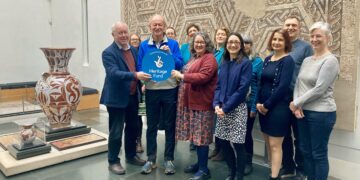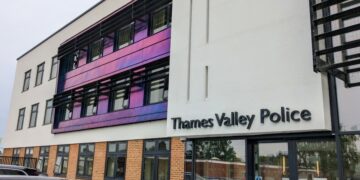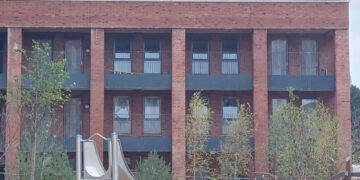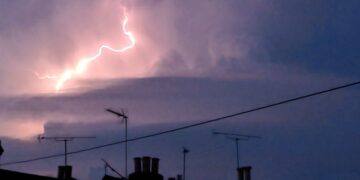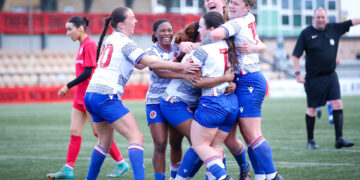BBC Radio Berkshire ceases to exist as we know it from Monday, with only the breakfast and morning show remaining unique to the region, despite opposition from Reading East MP Matt Rodda.
Under a shake-up of how BBC local radio operates across the country, stations will merge from 2pm on weekdays, and all weekend – apart from sports broadcasts. It means that local radio is no longer local.
Hundreds of much-loved presenters across the country have been forced out and their much-loved voices will no longer grace the airwaves. It follows a previous shake-up during the first covid lockdown, which saw shows move to a four-hour duration, with long-running shows such as Irish Eye booted off air never to return.
Among those who have presented their final shows last week are BBC Radio Berkshire’s Bill Buckley and Phil Kennedy, both vastly experienced broadcasters.
However, Breakfast DJ Andrew Peach will continue to be heard on the network.
Under the changes, BBC Radio Berkshire will share an afternoon show with Radio Oxford, hosted by Bridgette Tetteh.
The two stations will share a BBC Introducing programme.
Weekend output will be shared with radio stations Oxford and Solent, with the exception of sports coverage which will remain Berkshire-based.
Radio Berkshire was one of the last BBC local radio stations to launch. Its first programmes were aired in 1992, but the then director general, John Birt, merged it with Oxford in 1996 to create Thames Valley FM. Listener outcry saw the stations become separate entities again on Valentine’s Day in the year 2000.
In that time, star names presenting shows included Matt Allwright, Henry Kelly, Anne Diamond, Paul Coia, and Tony Blackburn.
In 2018, the station was moved to new purpose-built studios in Thames Valley Park, but now these will be empty for much of the week.
Peter Cook, senior head of production for BBC South, said: “I’m incredibly proud of what we do and pleased to share the new line-up for the south.
“We’ll have fantastic voices on-air who are known and loved by our audience.”
However, the plans have been widely criticised across the country.
Among those sceptical is the National Union of Journalists, which has led a series of strikes over the past year in a bid to get the BBC to rethink this cultural vandalism.
In July, ahead of a two-day strike, Paul Siegert, NUJ national broadcasting organiser, said: “The BBC’s damaging plans for job cuts, slashing local radio and changing ways of working remain deeply unpopular … We believe there are ways to protect and promote digital investment without cutting much-loved and valued local radio content.”
And in a parliamentary debate in June, Reading East MP Matt Rodda said: “Local radio is a much-loved companion and a comfort to people in need, people who are isolated in rural communities, and other people who are perhaps disabled, elderly or at home on their own.
“It is a wonderful medium, particularly for older residents. It is hugely valued and should not be forgotten.”
The new BBC Radio Berkshire schedule
Weekday afternoons 2-6pm
BBC Radio Berkshire and BBC Radio Oxford – Bridgette Tetteh
Weeknights from 7pm
Monday – Rena Anobil
Tuesday – Stephen Brown
Wednesday – Stephen Brown on BBC Radio Berkshire and BBC Radio Oxford. Richard Latto on Radio Solent
Thursday – Leo Ulph from 6pm
Thursday nights 8-10pm
BBC Music Introducing on BBC Radio Solent – Steph Nieuwenhuys (parental leave with Fern Buckley covering)
BBC Music Introducing on BBC Radio Berkshire and BBC Radio Oxford – Dave Gilyeat
Weekends
Saturday 6am-10am – On BBC Radio Solent, BBC Radio Berkshire, and BBC Radio Oxford – Katie Martin
Both Saturday and Sunday 10am- 2pm – On BBC Radio Solent, BBC Radio Berkshire, and BBC Radio Oxford – Alice Hopkins
Sunday 6am-10am – On BBC Radio Solent, BBC Radio Berkshire, and BBC Radio Oxford – Katie Tyler


